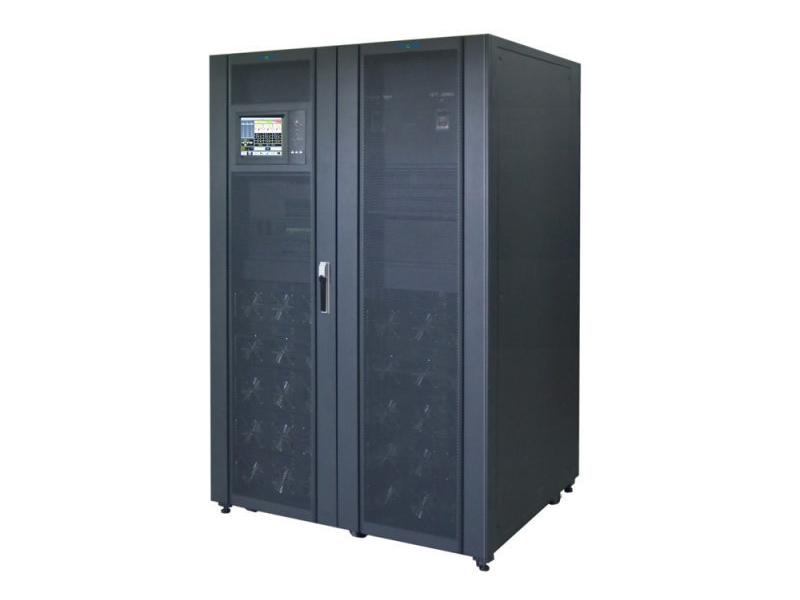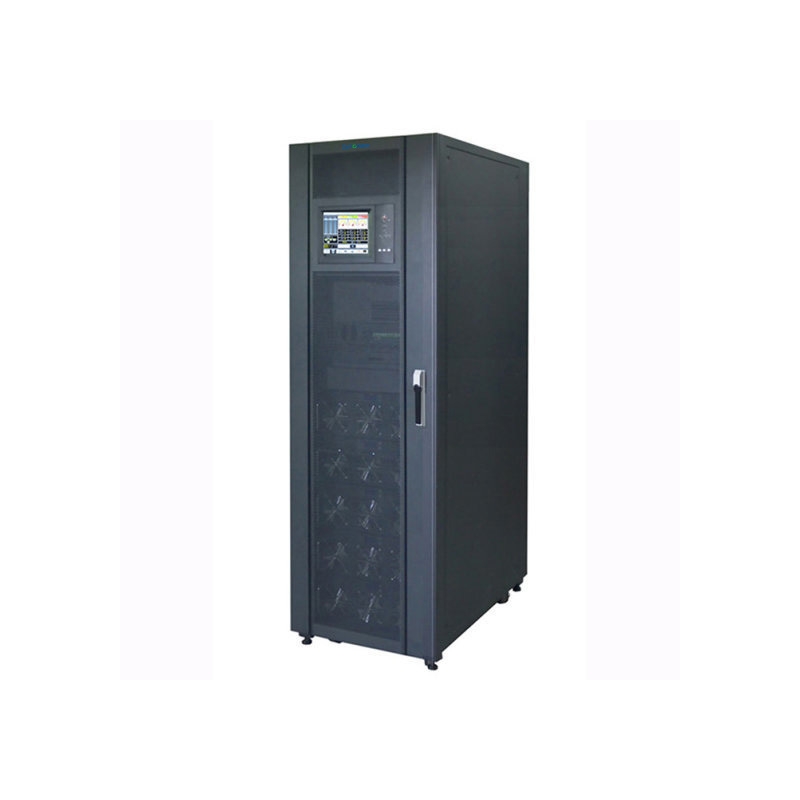

Modular UPS systems are built for adaptability and growth. They include several smaller units that combine to deliver the needed power level. Each unit works on its own. This allows the system to keep running if one unit fails. This setup boosts dependability and cuts downtime. Plus, modular UPS systems save space. They can be tailored to meet specific needs without wasting materials.
Monolithic UPS systems, by contrast, are constructed as one big unit. They offer a set power level based on their design. These systems are sturdy and can manage heavy loads. Yet, they don’t adapt as easily as modular ones. A failure in a monolithic UPS can cause the whole system to stop unless there’s a backup. Their bigger size also makes them less ideal for places with limited room.
A major benefit of modular UPS systems is their ability to grow step by step. Companies can begin with a smaller setup, using only the units required for current needs. As power needs increase, more units can be added smoothly. Operations stay uninterrupted. This grow-as-needed approach saves money upfront. It also helps businesses adjust to new demands quickly.
Hot-swappable units are a vital part of modular UPS systems. They allow repairs or upgrades without turning off the whole system. This ensures constant power. Technicians can swap or add units fast and safely. By avoiding full shutdowns for maintenance, these units improve efficiency and support growth.
Modular UPS systems shine for growing setups due to their flexibility and cost savings. Businesses with fast growth can increase power without replacing their entire system. The modular method also cuts waste. Companies only buy what they need at the time. This adaptability is key in fast-changing fields where power needs vary greatly.
Monolithic UPS systems have clear limits for growth. They come with a set power level. Any rise in demand means replacing the unit or adding a new one entirely. This rigidity raises costs. It also slows down expansion compared to modular options.
Upgrading monolithic UPS setups is often tricky and slow. It requires a big initial investment. There’s also a risk of downtime during installation. This makes it less attractive for companies needing flexible solutions. Plus, the larger size of monolithic systems can complicate growth in tight spaces.
Modular UPS systems bring big advantages for maintenance. They reduce downtime too. Their design lets single units be fixed or replaced without affecting the whole system. This is great for businesses needing constant power. Technicians can work on one unit while others keep running. The modular setup avoids full system shutdowns. This cuts interruptions and boosts reliability.
Also, hot-swappable units in modular UPS systems make replacing faulty parts simpler. Technicians can swap defective units quickly. No need to shut down the system. This keeps power flowing during maintenance. It saves time and lowers the chance of long outages. Such outages can cost businesses a lot.
A top feature of modular UPS systems is their ability to handle changing power demands. Companies often deal with varying needs due to growth or new tech. Modular UPS systems solve this by allowing gradual expansion. Businesses can start small, matching their current needs. They can add more units as demands rise.
This flexibility avoids overbuying, which happens with monolithic UPS systems. Fixed capacity there often leads to wasted resources or early upgrades. By matching power to actual needs, modular systems use resources better. They also cut extra costs. This makes them perfect for fast-moving sectors like data centers, hospitals, or telecom.
The growth-friendly nature of modular UPS systems leads to big savings over time. Companies can use a “buy-as-you-grow” model. They add units only when needed. This lowers upfront costs. It also offers flexibility for future expansion. Scaling gradually means businesses avoid oversized systems that sit underused.
Plus, modular UPS systems cut long-term costs. Maintenance is simpler. The system lasts longer. The design allows replacing or upgrading single parts, not the whole unit. This reduces repair costs. It also keeps the system current with little disruption.
Scaling monolithic UPS systems, however, brings financial challenges. These systems have fixed capacities. Any demand increase requires a new unit or replacement. This means a big upfront cost. It often leads to wasted resources from overbuying.
The lack of adaptability in monolithic systems also raises running costs during upgrades. Companies may face long downtime when switching systems. This cuts productivity and profits. Also, the larger size of monolithic units may demand extra investments, like more cooling or space.

Modular UPS systems are ideal for industries needing high adaptability and reliability. Data centers are a great example. They face fast-rising power needs due to digital growth and cloud computing. Scaling gradually lets data centers expand without halting work or spending too much.
Hospitals also gain from modular UPS designs. They need constant power for various devices and departments. The flexibility ensures critical equipment stays on, even during repairs or failures.
Telecom companies use modular UPS solutions to support their wide networks. The adaptability helps them meet different power needs across locations. It keeps service quality steady.
Despite their growth limits, monolithic UPS systems suit some situations. Fixed capacity is fine where reliability matters most. For instance, factories with steady power needs may choose monolithic designs. These are tough and handle heavy loads well.
Also, companies in places with no space limits may pick monolithic UPS units. They value simplicity over growth potential. In these cases, the larger size isn’t a big issue. This makes them a practical choice for specific needs.
For businesses seeking dependable and adaptable power solutions, ZLPOWER offers top-tier solutions of UPS supply. These deliver great performance and flexibility. With cutting-edge tech and unmatched support for its products, ZLPOWER ensures smooth operations. It also provides easy scalability for future needs. Explore ZLPOWER’s full product range today. Invest in a solution that evolves with your business!
FAQ
A: Modular UPS systems enhance reliability by using independent modules. If one module fails, the others continue to function, minimizing downtime and maintaining power supply.
A: Scalability refers to the ability to increase power capacity as needed. Modular UPS systems allow gradual expansion by adding modules, while monolithic systems require replacing or supplementing the entire unit.